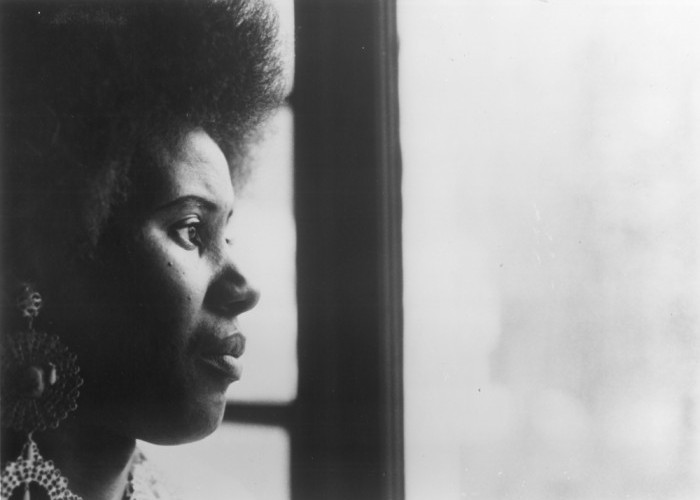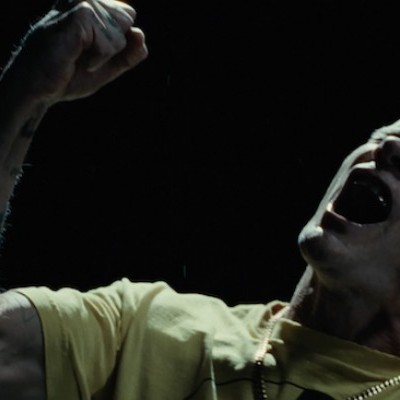Dec 9, 2025 12:28 PM
In Memoriam: Gordon Goodwin, 1954–2025
Gordon Goodwin, an award-winning saxophonist, pianist, bandleader, composer and arranger, died Dec. 8 in Los Angeles.…

Alice Coltrane’s transcendence-targeted music, filled with Eastern tonalities and alluring instrumentation, was a devotional statement ahead of its time.
(Photo: DownBeat Archives)Alice Coltrane’s Impulse! albums advance the sound of seeking.
Her transcendence-targeted music, filled with Eastern tonalities and alluring instrumentation, was a devotional statement ahead of its time. The liner notes for these volumes read like diaries of Coltrane’s propulsive, spiritual development, logs from a course charted toward Nirvana. Her final Impulse! offering, 1972’s Lord Of Lords, includes her rendition of Igor Stravinsky’s “The Firebird.” In Coltrane’s remarks on this recording, which is set for an Aug. 3 vinyl reissue on the Superior Viaduct imprint, she details a particularly striking occurrence.
“On March 20, 1972, I was blessed with the good fortune of receiving a visitation from the great master composer, Mr. Igor Stravinsky, who I had never met before in life,” she wrote. Coltrane proceeds to describe a stimulating conversation with the deceased Russian, after which he proffers a glass vial filled with magical elixir. After gulping it down, Alice seemingly gains superhuman string-arrangement skills. “Since that time, it has been incumbent to me to proceed forthrightly into the great master Stravinsky’s works. Divine instruction has been given to me throughout the entire arranging of this music, even down to the smallest detail.”
John Coltrane was an immense Stravinsky fan, and with the Russian composer’s works in frequent rotation at home, it’s no surprise that Alice would choose to record his compositions: The couple and Stravinsky shared a desire for sonic manifestation of the divine. While Alice’s excerpts from “The Firebird” are remarkably true to the classical notation, her instrumentation and mystic touch project it into another world. Coltrane’s organ pulses with a fathomless energy that, when coupled with the meteoric strings, spirals into infinity. Her trademark harp enters the scene midway, giving the song an ethereal quality that easily could soundtrack an astral cruise.
While it’s impossible for listeners to know whether Alice’s recording of “The Firebird” was blessed by Stravinsky’s spirit, album producer Ed Michel recently was able to lend some insight. He recalled the episode as a manifestation of the musician’s meditation practice.
“There was an edit that needed to be made, and I regarded myself as the Charlie Parker of the razor blade; I could do impossible edits. But I just broke my back on that one and couldn’t make it work,“ he explained. ”[Alice] said, ‘I’ll go home and meditate on it.’ She came to the studio the next day and said, ‘Well, I know what to do. I meditated on it and I got some help from Bach and The Father, which is how she always referred to John, and Mr. Stravinsky. Mr. Stravinsky said, ‘Cut it here.’”
Michel remembered the astonishing result: “I said, it’s impossible. It will never work, but I cut it there and it worked perfectly.”
The liner notes make it clear that the other pieces on Lords Of Lords also benefited from celestial inspiration. In her commentary for the track “Sri Rama Ohnedaruth,” a name bestowed upon John Coltrane in post-physical form, Alice acknowledged her late husband’s energetic guidance: “His astral globule manifested in my being for my use expressly in music.”
Alice was joined by an earthly ensemble to augment the other-worldly inspirations. In addition to the 16-piece string section, Ben Riley played drums and percussion, and Charlie Haden was on bass. Michel remembered the flow as such: “She conveyed to the string players through her playing and through the rhythm section what she wanted.” Coltrane was able to pull remarkable expression from the strings, especially considering she lacked formal training in arranging and conducting. Her acumen, bolstered by supernatural support or otherwise, was extraordinary.
The album’s second side is where Haden and Riley shine. The title cut is a moody exaltation of the supreme. Haden’s magnificently shadowy bass and Alice’s nuclear organ drones merge to create depth, while Riley’s bells and chimes twinkle in the spacious field. The entire mass of sound is like viewing star clusters flickering through the void. The wide spectrum of existence is given equal play—darkness and light, pain and ecstasy.
Lord Of Lords concludes with a piece providing insight into Coltrane’s expansive outlook on time and space. Her intense spiritual metamorphosis within the Hindu tradition did not erase her past, rather it seemed to compound and enrich her musical roots in the Detroit gospel church and the connection to her family’s Southern heritage. “Going Home” is a popular African American spiritual, based around the theme from Antonín Dvořák’s “Largo.” With its yearning, melancholy essence, the song was treasured within the Coltrane household and often played at memorial services. Alice’s great nephew, the acclaimed electronic producer Flying Lotus (Steve Ellison), recalled its impact on his own recordings.
“After my aunt passed, I was listening to Lord Of Lords quite a bit, and also when my mom passed,” he said. Alice’s version of “Going Home” especially reinforced his desire to make music with a positive purpose. Ellison continued: “It was very healing for me. I remember thinking to myself, this is what I want to do for people. I want to try and make this music that can heal somebody.”
Lord Of Lords completes Coltrane’s trilogy that includes Universal Consciousness and World Galaxy. These works shed categorization and sidestep expectations, as they leap into the beyond. Cover up the Impulse! logo and a first-time listener might rightly consider Lord Of Lords to be cosmic classical music, instead of something that was part of label’s jazz stanchion.
Michel acknowledged the broad form: “It’s an Alice Coltrane record. When we made it, I thought it was a jazz record. Now, I don’t categorize so much. It’s music. Maybe it’s not even music; maybe it’s a spiritual lesson.” DB

Goodwin was one of the most acclaimed, successful and influential jazz musicians of his generation.
Dec 9, 2025 12:28 PM
Gordon Goodwin, an award-winning saxophonist, pianist, bandleader, composer and arranger, died Dec. 8 in Los Angeles.…

Belá Fleck during an interview with Fredrika Whitfield on CNN.
Jan 13, 2026 2:09 PM
The fallout from the renaming of the John F. Kennedy Center for the Performing Arts to include President Donald…

The success of Oregon’s first album, 1971’s Music Of Another Present Era, allowed Towner to establish a solo career.
Jan 19, 2026 5:02 PM
Ralph Towner, a guitarist and composer who blended multiple genres, including jazz — and throughout them all remained…

Flea has returned to his first instrument — the trumpet — and assembled a dream band of jazz musicians to record a new album.
Dec 2, 2025 2:01 AM
After a nearly five-decade career as one of his generation’s defining rock bassists, Flea has returned to his first…

Rico’s Anti-Microbial Instrument Swab
Jan 19, 2026 2:48 PM
With this year’s NAMM Show right around the corner, we can look forward to plenty of new and innovative instruments…